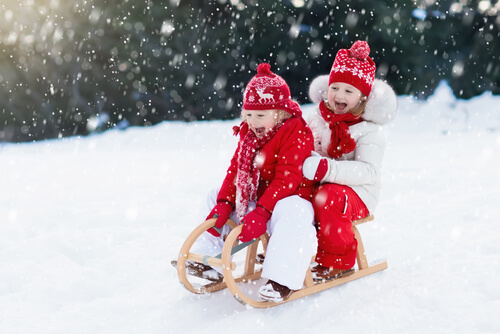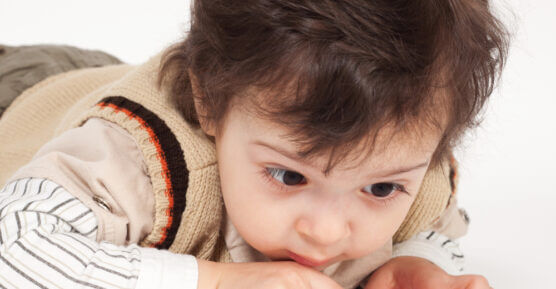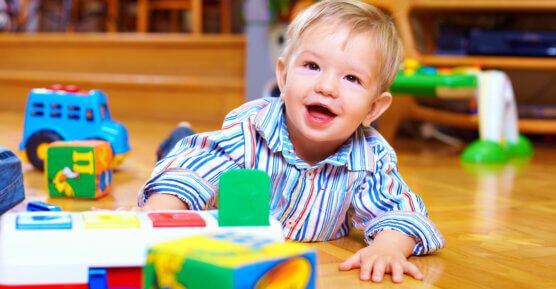
Table of contents
For families concerned about their child in cold weather and how to keep a child warm in winter, here are some tips and help with energy bills for households grappling with high heating bills.
How can I help my child stay warm this winter?
Here are 5 tips to help your child stay warm in cold weather.
1. Dress babies and children appropriately
Several thin layers will keep your child warm and dry. This is especially important for outdoor activities. Ensure young children are wearing warm boots, gloves and a hat outdoors in cold weather.
Dress your baby appropriately for bed so they are already warm when you put them down to sleep recommends Kate Holmes, head of support and information at The Lullaby Trust. This means a vest and a sleepsuit, followed by a baby sleeping bag, which should be selected according to room temperature and not the outdoor temperature.
For older babies and young children dress them in one more layer of clothing than an adult would wear in the same conditions. While you may be tempted to wrap kids up in thick coats in the cold weather, they shouldn’t wear bulky clothing when they are sitting in car seats. In the car, babies and children should wear thin, snug layers rather than thick, bulky coats.
Blankets, quilts, pillows and other loose bedding should be kept out of a baby’s sleeping environment because they are associated with suffocation deaths. Babies easily overheat, so when they are under 12 months of age. Overheating increases the chances of sudden infant death syndrome (SIDS).
Do not use an electric blankets for babies under 12 months. An infant’s skin is very sensitive to heat and could be scalded. You should also avoid using an electric blanket with an older child if they still wet the bed or they are able to use the controls themselves because they could turn the heat up too high.
2. Set time limits on outdoor play
Set reasonable time limits on outdoor play, such as sledging, to prevent hypothermia and frostbite. And remember to have children come inside regularly to warm up. Children benefit immensely from playing outdoors however there are still dangers linked to playing in the cold.
What if my child develops hypothermia or frostbite? Frostbite occurs when skin becomes frozen. This tends to happen on people’s extremities like the fingers, toes, ears and nose. They may become pale, grey and blistered. The child may complain that his/her skin burns or has become numb. If frostbite occurs bring the child indoors. Do not rub the frozen area. If you suspect your child has frostbite call for an ambulance.
Hypothermia develops when a child’s temperature falls below normal due to exposure to colder temperatures. It often happens when a child is playing outdoors without wearing proper clothing or when clothes get wet. The child may shiver and become lethargic and clumsy. Speech may become slurred and body temperature will decline. If you think your child has hypothermia, call for an ambulance. Take the child indoors, remove any wet clothing and wrap them in blankets or warm clothes.
3. Hot meals and warm drinks
Give your child at least one hot meal a day and regular warm drinks. The NHS says children should have at least one hot meal a day. When it comes to being budget-friendly, home cooking beats eating out.
Budget-friendly meals can include a jacket potato, pasta, porridge or soup.
Foodbanks. If you need urgent help getting food and cannot afford to pay for it, you can get free food by visiting your local foodbank. They give out free parcels that should provide at least three days’ worth of in-date, non-perishable food. The Trussell Trust is a foodbank charity operating across the UK.
Hot meals and warm drinks contribute to a child’s warmth. If you are struggling to afford the weekly food bill, find out if you live near a social supermarket. These are aimed at people on low incomes who would like to pay a lower price for food. Social supermarkets sell surplus products from major supermarkets at heavily discounted prices.
You can find your nearest social supermarket by visiting:
4. Heat your home
It is important to ensure your home is adequately heated. Not heating your home properly can contribute to damp issues and frozen pipes if the weather’s cold, which can result in hundreds of pounds worth of damage.
The Energy Saving Trust recommends ventilating rooms and having the heating on to some degree during winter.
You should be aiming for a room temperature of between 16°C and 20°C, regardless of the temperature outside. NHS says all-night heating for your baby is ‘rarely necessary’ because infants do not need hot rooms.
5. Get financial help if needed – Help with energy bills
Many parents are struggling to afford to pay energy bills to heat their home but there is help available.
Warm Home Discount Scheme
If you are on a low income, energy suppliers can give you a one-off £150 discount off your electricity bill for the winter. The warm home discount reopened in October 2024.
Fuel Direct
If you receive certain benefits and are struggling with debt to your energy supplier, you may be able to have your heating bills partially or fully paid for directly from your benefits. To apply visit your nearest Jobcentre Plus.
National Concessionary Fuel Scheme
If you are an ex-employee of the National Coal Board or the British Coal Corporation, or an ex-employee’s widow/widower, you can get deliveries of free solid fuel (e.g. wood or coal) or a cash allowance for fuel. To claim, contact the National Concessionary Fuel Office on 0345 759 0529.
Household Support Fund
Your council can offer the Household Support Fund to help people meet essential costs. You do not need to be on benefits. Contact your local council to see if you are eligible.
Cold weather payment
You may be eligible for a cold weather payment, if you are getting certain benefits and the average temperature in your area is forecast to be zero degrees celsius or below for more than 7 consecutive days. You’ll get £25 for each 7 day period of very cold weather between 1 November 2024 and 31 March 2025.
Warm banks
Go to a warm bank. Many councils and other organisations are opening warm banks (also known as heat banks) this winter to offer people somewhere warm if they cannot afford to heat their own homes. Check with venues for opening times, facilities before you visit a warm bank.
Talk to your energy supplier
During winter (October to March), a supplier cannot disconnect a domestic property if it has people under the age of 18 living there. Energy companies that are signatories to the Energy UK vulnerability commitment will not disconnect a domestic household that has children under the age of six.
If you have a young child, your energy supplier could offer you support through the Priority Services Register (PSR).


